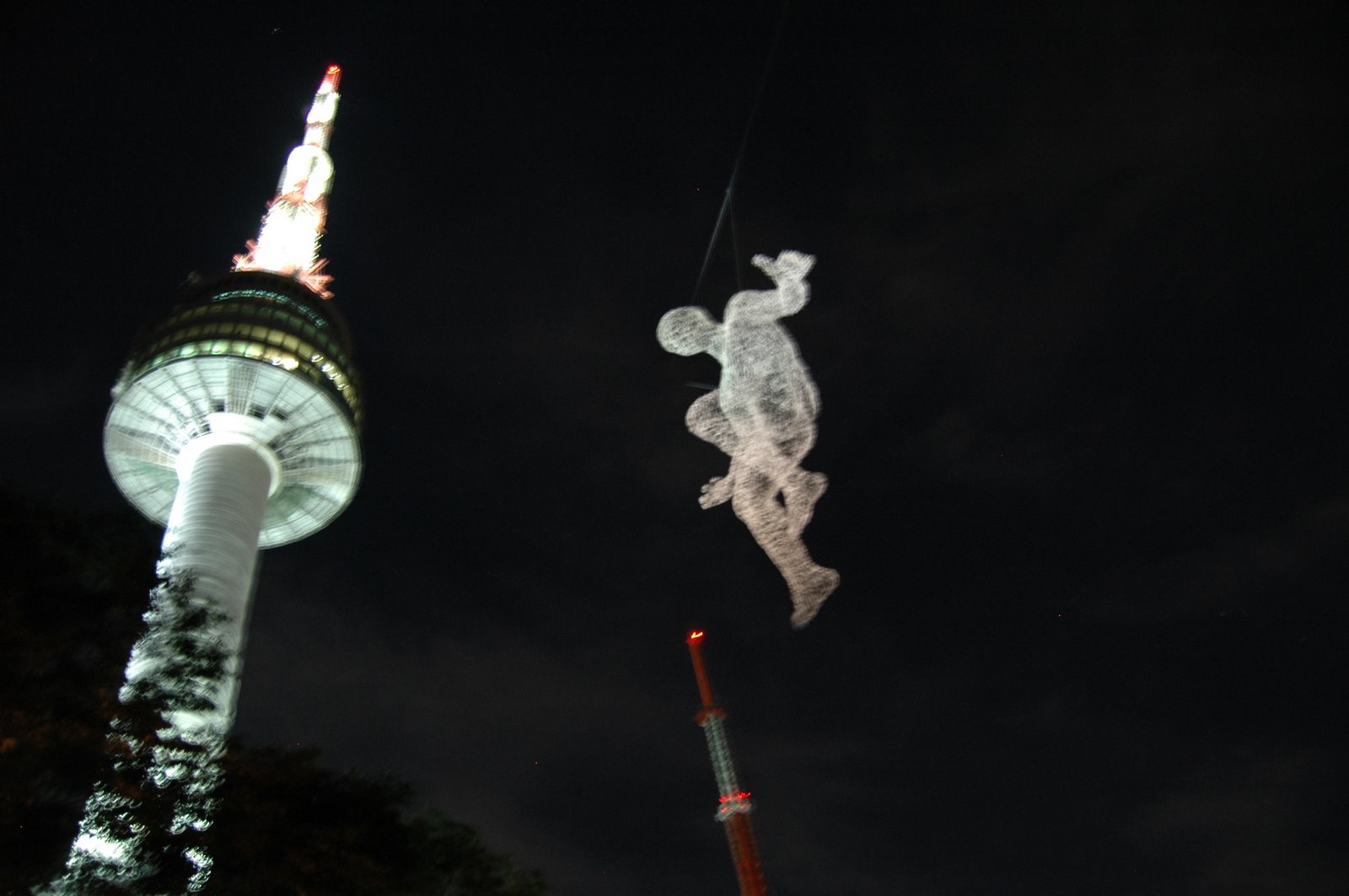
Some time ago he had found himself. He had found himself in Europe or Australia or North America. He had found himself in debt, or without a job, or working for a corporation, or without ever having been anywhere, really. He had found himself with exceedingly fewer outs. If “himself” was a place, then he wanted to move.
It was then he remembered: he knew someone who had taught in Korea. The person he knew of took vacations in exotic places and told good stories about those places.
So he took an airplane a long way trusting e-mails rife with bad English. He landed in Seoul in the dark and the first images he noticed were the red neon crosses. From the window he watched them float in the night as he took a bus to Jeonju or Cheonju, or Gwangju or Gyeongju.
He started work the next day and the work was good. They did things differently, that’s for sure, but they were nice to him even if they didn’t always pay him on time. The children made him feel happy in the morning and then feel tired in the afternoon.
His apartment was small. It had bugs. But he didn’t mind. He wouldn’t spend that much time in it anyway. There were a lot of things to do in his new place. He wanted to find friends, the good restaurants, good places to see music. A friend told him before he came to “carve out his niche.” He wanted to do that.
He knew of web sites dedicated to foreigners living in his city. At first that didn’t interest him much—he said he wasn’t in Korea for the foreigners. But after a few months of singing the alphabet song he went looking for a place to have a good talk.
When he got to the bar they were playing the best songs from three years ago. It was easy to meet people—most of the crowd liked talking about themselves. “Why in God’s name did you come to Korea?” they asked him. They asked him because they had come with as much reason as he did. It had seemed as good of a place as any.
The people he met were what they were or what they aren’t. They were not in Korea for the air. They were not in Korea for the beaches. They were not in Korea for the architecture. They came from places with great natural beauty. They came from places where a person can be alone in that great natural beauty. He wasn’t sure why they were there.
Some seemed to make more sense than others. They were the teachers in their homeland that thought teaching in Asia sounded exotic. Or they wanted to be teachers when they returned but were prolonging that commitment. Most said they were not teachers.
Some thought of themselves as travelers. They took weeklong vacations to Southeast Asia and brought back a t-shirt from each country. They went to Japan and China and talked about the magic they had witnessed.
Some had been there too long. They had been running from a life that was chasing them with a morbid inevitability and they had run too far. They were lonely; they made new friends but those friends didn’t stay. Most were something else in their homeland that either hadn’t happened or wouldn’t. They felt detached from their old scene and their old friends and their old culture. But they didn’t want that back, or this, exactly—they somehow wanted both and neither.
In time, he quit the bar. He had met people and learned about the world, but still they were not his people. He knew his time in Korea was meant to be short, and even though he had stayed longer than he thought he would, it seemed futile to develop short-term friendships. His time was almost up and he didn’t think he would ever come back.
Once again he found himself. He found himself alone in a country of an ancient race. He found himself at the end of a year (or was it two?) in a foreign country. He found himself with no desire to go home, yet without desire to stay and attempt to assimilate into an impenetrable culture. He was leaving; it was time. He was going somewhere. But he didn’t know where.




